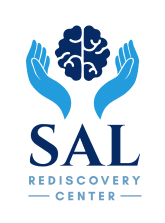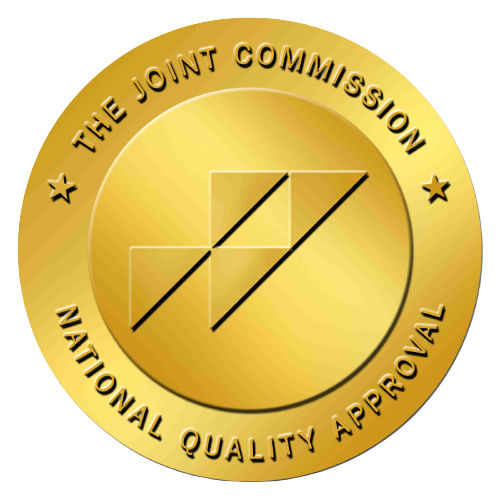The events of your childhood play an essential role in your growth and development. The effects of trauma during this time can extend into adulthood, influencing your mental and physical health years — even decades — later.
When children experience trauma, significant long-term effects can last well into adulthood. Sometimes, it can feel like your past trauma is taking control of your life.
Salisu Aikoye, MD, and the team at Sal Rediscovery Center in Norwalk, California, specialize in helping you heal from past trauma and better manage your thoughts and emotions so you can reclaim control over your life.
Here’s a closer look at how childhood trauma can create lasting effects on your well-being and the ways we can help.
Understanding childhood trauma
Childhood trauma refers to any adverse experience or distressing, frightening, or harmful events that took place while you were growing up. The trauma can take different forms, including experiences like:
- The threat of or actual physical abuse or harm
- Witnessing domestic violence, including emotional, verbal, or physical abuse
- Attempted or actual sexual abuse, including incest, rape, or molestation
- Experiencing neglect, including emotional neglect, lack of nutrition or medical care, lack of supervision, not having physical needs met, withholding education, etc.
- Experiencing emotional abuse, including withholding of affection, criticism, rejection, humiliation, etc.
- Having a close family member go to jail
- Growing up in a household with a caretaker with untreated substance abuse or mental health issues
- The significant injury or illness of a family member or loved one
- Experiencing a significant natural disaster
- Significant public health crises or outbreaks (e.g., COVID-19)
- Being involved in an accident or community violence (e.g., street violence)
- Sudden or violent loss of a family member or loved one
- War or refugee experiences
The effects of childhood trauma are often cumulative. In other words, experiencing multiple traumatic events or ongoing exposure to traumatic experiences compounds the impacts.
Lasting mental health effects of childhood trauma
Although not everyone who experiences childhood trauma develops mental health issues, because it takes place during the formative years, it can have substantial lasting effects on your mental health.
In fact, research has shown childhood trauma is significantly correlated to numerous mental health issues, including but not limited to:
Post-traumatic stress disorder (PTSD)
Some people who experience childhood trauma develop post-traumatic stress disorder (PTSD), which can cause nightmares, flashbacks, intrusive thoughts, emotional distress, hypervigilance, increased irritability, issues with concentration, and other problematic symptoms.
Anxiety disorders
People who experienced childhood trauma often develop one or more anxiety disorders, such as generalized anxiety or panic disorder. That can cause symptoms like excessive fear, worry, or panic that interfere with your daily life.
Depression
Childhood trauma increases your risk of ongoing depression. Researchers believe this is because the trauma disrupts the developing brain’s chemical balance, which can influence mood regulation.
Substance abuse and addiction
To cope with the emotional distress, pain, and memories or thoughts caused by childhood trauma, many people who experience it develop a problem with substance abuse. Unfortunately, substance abuse typically worsens the symptoms of trauma.
Adults who experienced childhood trauma also have a higher risk of developing dissociative disorders, borderline personality disorder, and attachment issues, which can make forming healthy and lasting relationships a challenge.
Lasting physical effects of childhood trauma
Childhood trauma can also trigger lasting physical effects that can continue into adulthood. One of the most common issues is an increased risk of developing one or more chronic health conditions, including:
- Type 2 diabetes
- Obesity
- Hypertension
- Heart disease
- Autoimmune conditions
- Cancer
Researchers believe that is due in part to the release of stress hormones. These hormones can cause issues with brain development in young children exposed to trauma, leading to cognitive delays, learning disabilities, and issues with emotional regulation, decision-making, impulse control, and memory.
Childhood trauma can also affect your sleep long after the events are over. For example, victims of childhood trauma have an increased risk of sleep disorders, like insomnia and sleep apnea. Be sure to talk to our team if you have any physical symptoms.
Treating the lingering effects of childhood trauma
At Sal Rediscovery Center, we know that traumatic experiences affect individuals differently, so we tailor your trauma treatment to meet your unique needs. In most cases, trauma treatment includes a combination of medication and talk therapy.
Our center has an intensive outpatient trauma program to address the many symptoms associated with the lasting effects of childhood trauma, including anxiety and depression.
If you’re struggling with the lasting emotional or physical effects of childhood trauma, get the help you deserve by scheduling an appointment online or over the phone at Sal Rediscovery Center in Norwalk, California.








Leave A Comment